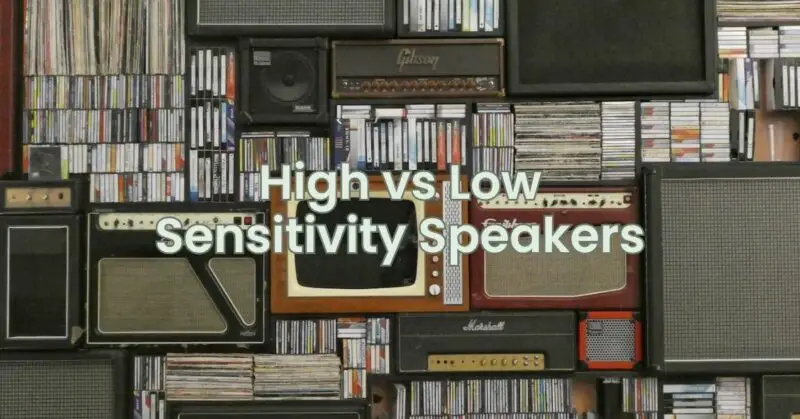Speaker sensitivity is a measure of how efficient a speaker is at converting electrical energy into sound energy. Speakers with higher sensitivity ratings require less power to produce the same level of sound as speakers with lower sensitivity ratings.
There are both advantages and disadvantages to high and low sensitivity speakers.
High Sensitivity Speakers
- Advantages:
- They require less power to produce the same level of sound, which can be beneficial if you are using a low-powered amplifier.
- They can be used in smaller rooms without sacrificing sound quality.
- Disadvantages:
- They may not be able to produce as much bass as lower sensitivity speakers.
- They may not be as detailed or accurate as lower sensitivity speakers.
Low Sensitivity Speakers
- Advantages:
- They can produce more bass than high sensitivity speakers.
- They can be more detailed and accurate than high sensitivity speakers.
- Disadvantages:
- They require more power to produce the same level of sound, which can be a drawback if you are using a low-powered amplifier.
- They may not be as well-suited for smaller rooms.
Which Type of Speaker is Right for You?
The best type of speaker for you will depend on your individual needs and preferences. If you are looking for speakers that are efficient and can be used in smaller rooms, then high sensitivity speakers may be a good option for you. If you are looking for speakers that can produce more bass and detail, then low sensitivity speakers may be a better choice.
It is also important to consider the power of your amplifier when choosing speakers. If you have a low-powered amplifier, then you will need to choose speakers with a high sensitivity rating. If you have a powerful amplifier, then you can choose speakers with a lower sensitivity rating.
Ultimately, the best way to decide which type of speaker is right for you is to experiment with different speakers and see what sounds best in your room.


